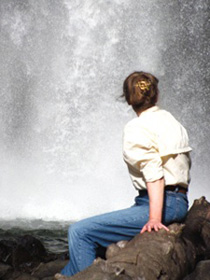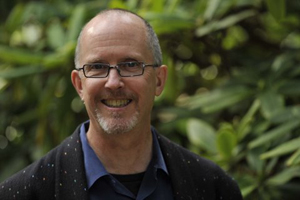An Ongoing Immediacy (An Encore Performance): John Barton in Conversation with Jan Zwicky

Malahat editor John Barton revisits his interview with Jan Zwicky from the summer of 2014, with three new questions to mark her joint win, with John Reibetanz, of The Malahat Review’s 2015 P. K. Page Founders’ Award for Poetry for her poem “Into the Gap.”
In “Lyric Realism: Nature, Poetry, Silence, and Ontology,” an essay you published in the Green Imagination issue of The Malahat Review (#165, Winter 2008), you say “When we pay attention, we can tell that the world is awake, that it means, hugely and richly, all the time.” What is required of a poet to be and remain attentive? How has attentiveness shaped your practice as a poet?
Let’s phrase the first question as “What is required of anyone to be and remain attentive?” If we had the answer to that, we could fix everything that’s wrong with the world. Simone Weil is correct when she says that concentrated attention is prayer. That is, the core of prayer is a wide receptivity, not the projection of personal need. How do you teach people to pray? I don’t know. Maybe by encouraging them to take note of things, gestures, events for which they feel gratitude. Perhaps the practice of attention begins with gratitude — though of course it can, and must, allow for awareness of evil.
I don’t have much in the way of habits or behaviours that could be called a poetic practice. When my attention becomes fragmented through overwork or too much social exposure, I’m useless, not just as a poet but as a musician, a gardener, and a friend as well. So I try to be alert to that fragmentation, to catch it before it becomes severe, and to find a way to breathe again. I’m not always successful. But it seems to me that attention is just what happens when we’re healthy. When it’s not happening, I know something is wrong.
What role does silence take in your work, both practically (freedom from distraction) and aesthetically (discursiveness versus restraint)? Is making space for or a voicing of silence (if that is in any way possible) somehow connected to a focusing away from the self and toward the world?
Silence is the aural counterpart of space. Becoming aware of it is one way of becoming aware of the outlines of aural gestures that occur within it. I hope my work is full of silence. It’s one of the things I’m trying to point to.
There are many different kinds of silence. Some are damaging. The silences I’m most interested in are those that allow a kind of blossoming — they allow us to perceive things on their own terms. But silence itself can also bloom. And there are silences within the self. Attention to those silences is sometimes a way through the self to the world.
New question: We are both deracinated prairie people, upon whom the grandeur of the open skies above Alberta’s parklands has left a lingering mark, made bittersweet by the fact that the landscapes we recall have been changed irrevocably by globalization and the province’s rapid and, to some, problematic growth. “Into the Gap” is both a revisitation of what I have come to view as the “first landscape,” and an elegy. Can you say something about this?
The farm — its earth, its sky, its poplar scrub — is one of my parents. Letting it go, when my mother had to move, was so huge I couldn’t imagine it, I could only stumble through, numb. What helped me most was the way the place I live now kept walking towards me, an extraordinary generosity. Eventually I got my feet back on the ground; the grief became coherent. It took about five years. Not that it doesn’t still hurt; but I’m not stunned by it. At least, not all the time.
New question: I’m thinking about the way grain elevators really did define the visual appearance of the prairies for a few decades. Now the federal government has sold the Canadian Wheat Board to an international consortium. How do you think this will change the “prairie landscape”?
The visual appearance of the landscape had changed as early as the 90s, before the sale of the Wheat Board. The 100-year experiment on the prairies — the displacement and attempted eradication of native human cultures, followed by the attempt to replace them with a colonial culture of European-style family farms — was over by then. The colonizers’ children weren’t interested: they had left for the cities and much of the land itself had been bought up by or leased to large international corporations. Farming was replaced by agribiz, the infrastructure changed, and the elevators were no longer needed. However, the Canadian Wheat Board was certainly one of the institutions at the root of the original experiment and its demise will have a significant impact. As a child of agrarian socialist parents, deeply immersed in the colonial culture, I thought the Wheat Board was an excellent thing. As far as that culture goes, it still is — or was. It stood in the way of the worst abuses of the land itself. Harper, as you say, has given the Wheat Board — whose assets are estimated to be worth $17b — to G3, a Saudi Arabian- and American-owned corporation, in return for an investment of $250m in the Wheat Board itself. The deal has been in the works for a while, and last year, a group of Canadian farmers offered to buy the Wheat Board’s assets outright, in order to keep regulation of Canadian wheat sales and production in Canada. Harper refused them. Now that the Wheat Board has been handed over to foreign exploitation, there is no hope, I believe, even for the earth of which the prairies are made.
New question: Roo Borson chose “Into the Gap” as the co-recipient, with John Reibetanz’s “Fresco Magic” (a poem about Pompeii, a very different kind of place from rural Alberta), for an award named in honour of P. K. Page. Beyond an appreciation for her tremendous achievement, do you feel an affinity for P. K.’s work, and if so, where would such an affinity begin and end?
P.K. was a magnificent human being. I remember her self-discipline — evidenced in her exceptional posture, for example — and her exuberant appetite for life. She had a wry and subtle sense of humour, a very sharp wit, and could keep a secret. I loved her. About our work, there seem to me two things to say: we saw eye to eye on certain political issues — environmental crisis, feminism. I hope these issues are as visible in my work as in hers. But we executed poems in quite different ways. P.K. was more interested in overt formal structures than I am: end rhyme, for example; and she was occasionally willing to invert word order to achieve a rhythmic effect. I suspect it’s also significant that she appreciated certain kinds of visual boldness — it’s there in her painting, and was also perceptible in her stunning jewellery, and the things she loved and lived among. Her compositional style — by which I mean her line and her diction, not her imagery — also has some of this boldness. My style is, I hope, as strong; but I think it’s less bold.
It is my guess that an inclination, or even willingness, to articulate a sensibility singles out a great (by which I mean a lasting) thinker (artist, scientist, politician…) from the rest. I can pick up any work by Virginia Woolf, for example, and have a visceral sense of her internal dynamics and her consequent worldview. She breathes; she is sensate; I am of her time in my own time. How would you define sensibility? Is cultivating a sensibility a process, an end in itself, or simply a consequence of a thinking/feeling life?
What a toughie! The word ‘sensibility’ has had, for me, class overtones: it’s what distinguishes a woman who’s been to finishing school from one who hasn’t. But I see what you mean about Woolf: she has a distinctive way of interacting with the world. And it is powerful enough and pervasive enough to produce the effect you identify: “She breathes; she is sensate; I am of her time in my own time.” It’s a kind of directness, an absence of concern with appearance, an ongoing immediacy of engagement. A number of ancient Greek writers have the same effect on me. Is it possible to cultivate that kind of directness and immediacy? My guess is not. What makes the directness direct and the immediacy immediate is a lack of self-awareness; the attention is engaged by the world, not by thoughts of how one might engage it more immediately and directly.
So it would seem that your first question — how to develop and sustain attentiveness — underlies this one. Plunge in. Be. Breathe.
* * * * * * * *










